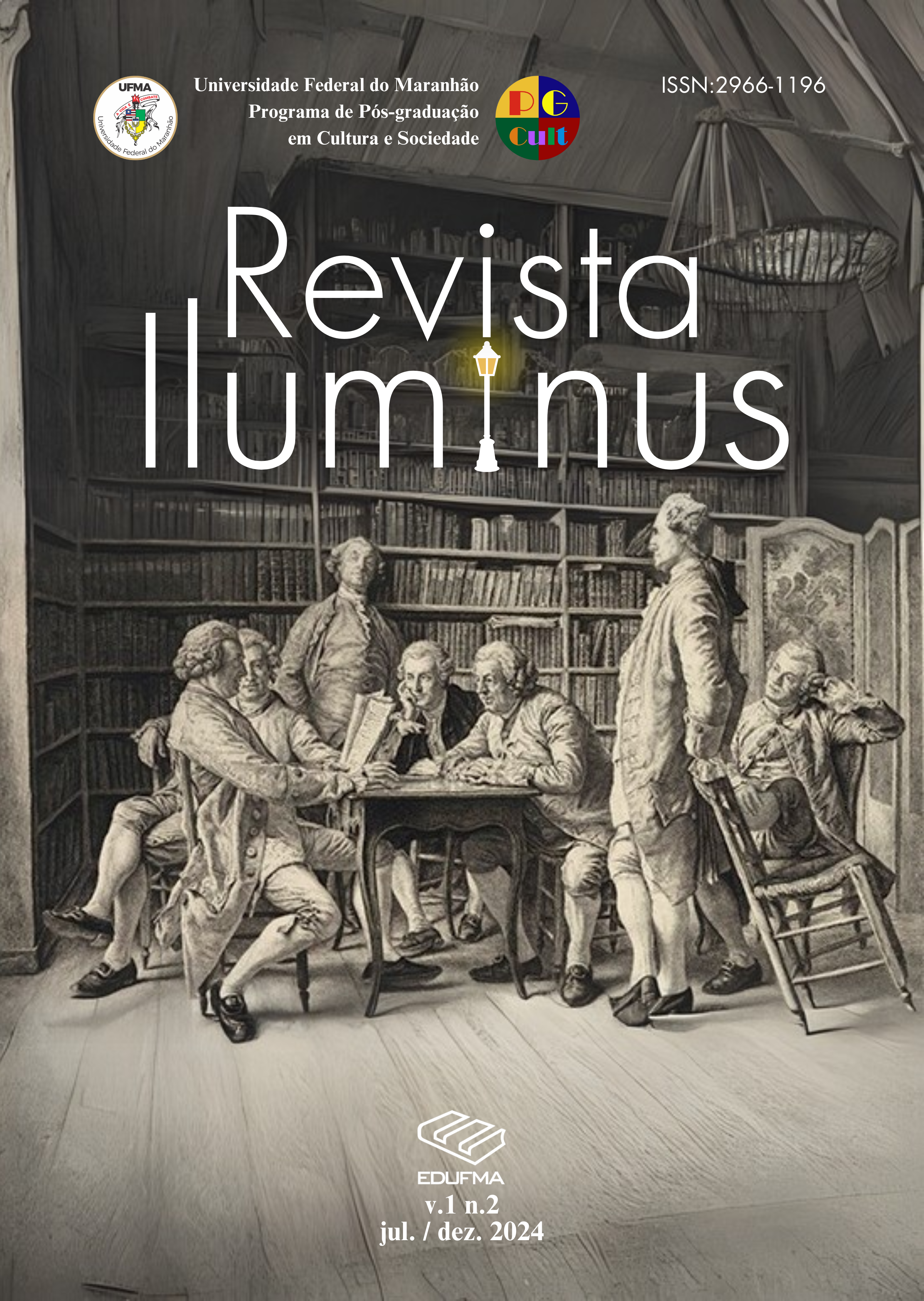Rousseau: a generalização do interesse e da vontade
DOI :
https://doi.org/10.18764/2966-1196v1n2.2024.26Mots-clés :
Rousseau, Generalização, Vontade, InteresseRésumé
A temática desenvolvida neste artigo versa sobre a generalização da vontade e do interesse, mostrando a importância da base antropológica para a formação do interesse bem compreendido do cidadão. A análise da discussão entre Rousseau e Diderot no Manuscrito de Genebra foi o ponto de partida das reflexões aqui apresentadas, levando à percepção de que Rousseau vincula a capacidade de generalizar ideias com a capacidade do indivíduo de separar-se de si mesmo. Condição sem a qual este não seria capaz de “considerar a espécie” e assumir os deveres que o engajamento exige. Significa dizer que “separação de si” implica uma aprendizagem, uma educação para tal condição. Isso é precisamente o que o “homme indépendent” não pode realizar de imediato, seria necessário fazê-lo ver de que maneira o seu interesse pessoal exigiria que ele se submetesse à vontade geral.
Téléchargements
Références
AUDI, Paul. Rousseau, une philososophie de l’âme. Lagrasse: Éditions Verdier, 2008. BACZKO, Bronislaw. Solitude et communauté. Traduit par Claire Brendhel-Lamhout. Paris: Mouton, 1974.
BERNARDI, Bruno. La Fabrique des Concepts: recherches sur l’invention conceptuelle chez Rousseau. Paris: Honoré Champion Éditeur, 2006.
BURGELIN, Pierre. La philosophie de l’existence de J.-J. Rousseau. Paris: VRIN, 1973.
COOPER, Laurence D. Rousseau, Nature and the problem of the good life. Penn:
Pennsylvania State Univ Press, 1999.
DIDEROT, Denis. Direito Natural. In : Verbetes políticos da enciclopédia. Tradução de Maria das Graças de Souza. São Paulo: Discurso Editorial; Editora da Unesp, 2006.
GOLDSHMIDT, Vitor. Anthropologie et politique: les principes du système de Rousseau. Paris: VRIN, 1974.
JOUVENEL, Bertrand de. As origens do Estado moderno: uma história das ideias políticas no século XIX. Trad. Mamede de Souza Freitas, Rio de Janeiro: Zahar, 1978.
JOUVENEL, Bertrand de. Essai sur la politique de Rousseau. Paris: Hachette, 1947.
KELLY, Christopher. "To Persuade without Convincing": The Language of Rousseau's Legislator. American Journal of Political Science, Vol. 31, No. 2 (May, 1987), pp. 321-335. Published by: Midwest Political Science Association. Stable URL: http://www.jstor.org/stable/2111079 Acesso em: 16/02/2013 06:53
SHKLAR, Judith. The General Will. Dictionnary of the History of Ideas. NY, 1993, tome 2, p. 275-281.
SHKLAR, Judith. Men and citizens: A study of Rousseau's social theory. London: Cambridge University Press, 1969.
SPINK, John S. Le sentiment intérieur. Proceedings of the Cambridge Bicentennial Colloquium. «Rousseau after 200 years». Edited by R. RA. Leigh. Cambridge University press, 1982. p 240- 250.
ROUSSEAU, Jean Jacques. Oeuvres complètes. Paris: Gallimard, volumes i,ii, iii, iv,v 1959, 1961, 1964, 1969, 1995 (Bibliothèque de la Pléiade).
VINCENTI, Luc. Jean-Jacques Rousseau l’individu et la république. Paris: Ed. Kimé, 2001.
Téléchargements
Publié-e
Comment citer
Numéro
Rubrique
Licence
(c) Tous droits réservés Marisa Alves Vento 2024

Cette œuvre est sous licence Creative Commons Attribution 4.0 International.
A Revista Iluminus está licenciada com uma Licença Creative Commons Atribuição 4.0 Internacional. Os autores da Revista Iluminus mantêm os direitos autorais.













